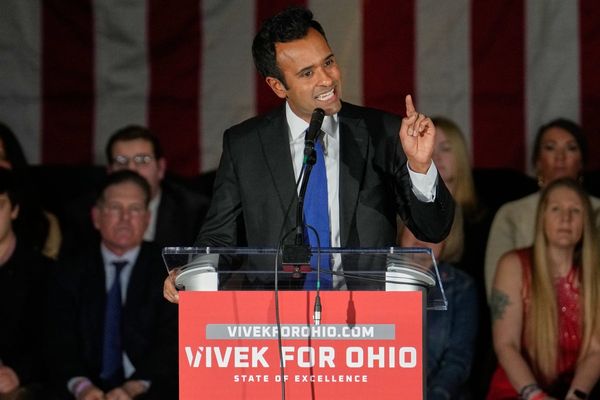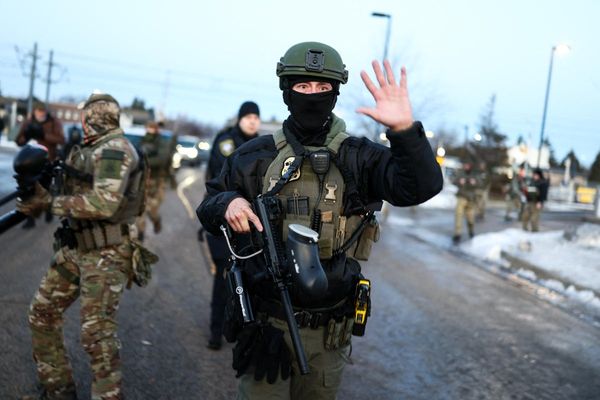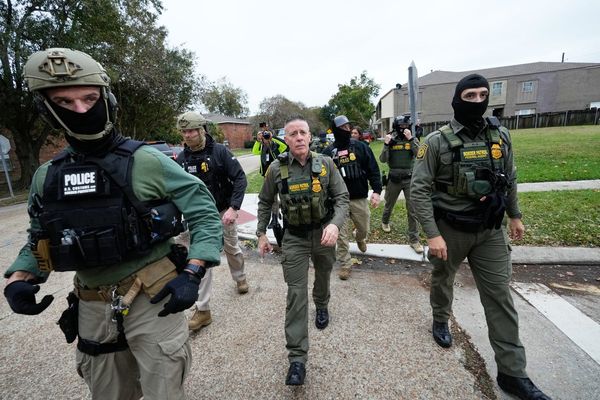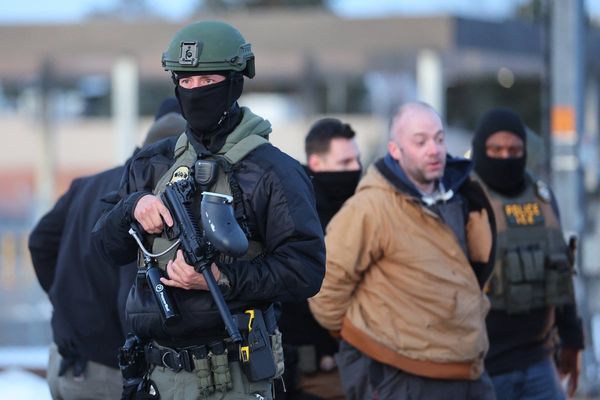The United Nations refugee agency says more than 100 million people worldwide have been driven from their homes by persecution, war and human rights violations, describing the figure as a new "dramatic milestone".
The UN High Commissioner for Refugees (UNHCR) said in its annual update that the increase had come as millions of Ukrainians were driven from their homes, and amid conflict in countries such as Myanmar and Burkina Faso.
"This means one in every 78 people on Earth has been forced to flee — a dramatic milestone that few would have expected a decade ago," it said.
This accounts for 1 per cent of the world's population. If displaced persons were a country it would be the world's 14th most populous.
"Every year of the last decade, the numbers have climbed," Filippo Grandi, the UN High Commissioner for Refugees, said.
As of the end of 2021, there were 89.3 million forcibly displaced people worldwide. They included refugees, asylum seekers and those fleeing within their own country's borders.
But Russia's invasion of Ukraine in February this year has caused a mass exodus from the country, which Mr Grandi has described as the fastest-growing refugee crisis since the end of World War II.
More than 7 million Ukrainians have been displaced within their country's borders, while more than 6 million have fled overseas, according to the UNHCR.
Sara Dehm, an expert on refugee law at the University of Technology Sydney, said wealthy countries like Australia needed to do more to help.
"The number of places available in such formal resettlement programs are drastically inadequate and only a small portion of what's needed to address global forced displacement," Dr Dehm said.
"High-income states — who currently host only around 17 per cent of the global displaced population — need to offer more safe and effective pathways to permanent resettlement for refugees and other displaced persons."
Displacement in Australia's region
Developing countries host the vast majority of the world's displaced persons.
During 2021, "almost 1.4 million people were reported to be newly displaced in the Asia and Pacific region, stemming almost entirely from humanitarian crises in Afghanistan and Myanmar," the UNHCR said.
The return of the Taliban in Afghanistan had seen 900,000 people flee their homes within the country or across international borders, with a further 400,000 people displaced in Myanmar after the February 2021 coup.
Pakistan hosts some 1.5 million refugees, mostly from Afghanistan.
Bangladesh hosts 918,900 refugees — a large proportion of whom are Rohingya refugees fleeing persecution in Myanmar.
Australia accepted 13,171 people into its humanitarian program in 2019-20, "falling short of the target of 18,750 places due to COVID-19", according to the Department of Home Affairs.
The Morrison government announced in March it would offer an additional 16,500 humanitarian places over the next four years to people fleeing Afghanistan.
Labor said ahead of the election it aspired to "progressively increase" Australia's refugee intake to 27,000 per year, as well as expand the community-sponsored refugee program to 5,000 places annually.
It also committed to abolishing temporary asylum visas and transitioning "eligible refugees" onto permanent visa arrangements.
Senator Nick McKim, who is the Greens' immigration spokesperson, told the ABC the Australian government needed to go further and "immediately end offshore detention and Operation Sovereign Borders".
"End the dangerous and life-threatening practice of turning boats around at sea," he said.
The Refugee Council of Australia said in an open letter to the Prime Minister after his election victory last month that while it "strongly disagree[d]" with Labor's offshore processing policy, it would work with the government to "support practical solutions for the 1,380 people still suffering under this policy after nine years".
"Australia is well placed to make a more significant contribution to solutions for refugees through resettlement," it added.
The ABC sent detailed questions about refugee policy under the new federal government to the Department of Home Affairs but did not receive a response by the deadline.
'Hear our voice', refugees in Indonesia say
Earlier this month, Afghan refugees rallied outside the Australian embassy in Jakarta, calling on Prime Minister Anthony Albanese to resettle refugees currently residing in Indonesia.
The South-East Asian country hosts more than 13,000 refugees — about half of whom are from Afghanistan — most of whom have little chance of permanent resettlement elsewhere.
"We cannot be repatriated to Afghanistan or integrated into Indonesia," said a joint statement by Afghan Hazara refugee activists, provided to the ABC.
They called on Australia, the US, Canada and New Zealand to "increase their refugee intake from Indonesia and accelerate processing times".
"We are kindly asking [Mr Albanese] to hear our voice which [has] not been heard during the past decade," they said.
Under a policy introduced by the federal government in 2014, when Scott Morrison was immigration minister, refugees registered with the UNHCR after June of that year were barred from resettlement in Australia.
"These changes should reduce the movement of asylum seekers to Indonesia and encourage them to seek resettlement in or from countries of first asylum," Mr Morrison said at the time.
But refugees have continued to arrive in Indonesia, where they are denied basic rights to education, health care and employment.
"Given that two out of the top five refugee source states, namely Afghanistan and Myanmar, are in the Asia Pacific region, Australia has a moral responsibility to provide safe and effective pathways to permanent resettlement to such refugees," Dr Dehm said.
"Resuming resettlement from Indonesia would be a logical way to enact this responsibility, particularly given refugees in Indonesia have been waiting for many years now in exceptionally difficult, informal situations for resettlement."
Senator McKim said the Albanese government needed to "work with the Indonesian and Malaysian governments in a really timely way to allow people to make claim for asylum in Australia from those countries".
People should be provided with a "dignity package" while waiting for their claims to be processed, allowing access to health care, educational opportunities and English classes to prepare them for life in Australia, he said.
"If we do this, we can certainly provide an orderly migration program, along with an increase in our humanitarian intake to 50,000 per year," he said.
Children over-represented among those forced to flee
The UNHCR said while only 30 per cent of the world's population were children, children accounted for 42 per cent of the world's displaced people.
A separate report released this week by the UN special rapporteur on human rights in Myanmar documented mass displacement and rights abuses against children since the military overthrew the country's democratically elected government.
Over the past 16 months, some 250,000 children have been displaced by the Myanmar military's attacks, with 142 killed and 1,400 detained, it said in a statement.
"The junta has intentionally deprived children of their fundamental human rights to health, education and development, with an estimated 7.8 million children out of school," it said.
"Following the collapse of the public health system since the coup, the World Health Organization projects that 33,000 children will die preventable deaths in 2022 because they have not received routine immunisations."
Even prior to the coup, Myanmar nationals were one of the top five groups of refugees resettled in Australia.
According to the Department of Home Affairs, more than 18,400 Myanmar nationals were granted humanitarian visas by Australia between July 1, 2011, and May 31, 2022.
"Myanmar nationals currently in Australia on temporary visas may apply for a range of visas to extend their stay in Australia," it said.







